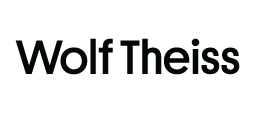Companies will have an additional year to comply with new EU rules aimed at preventing deforestation, which will prohibit the sale of products in the EU that originate from deforested land
The European Parliament and the Council of the EU have decided to postpone the application of the European Union Deforestation Regulation (EUDR) by one year, now taking effect on 30 December 2025 instead of the original 2024 deadline. The decision comes in response to concerns raised by EU member states and stakeholders about the feasibility of meeting the requirements within the initial timeframe.
1. New application date
Depending on the size of the company, the new application date of the EUDR are as follows:
- Large and medium-sized companies will have to respect the obligations of the EUDR as at 30 December 2025.
- Small companies and Micro enterprises have an additional six months to comply with the obligations of the EUDR with an application date as at 30 June 2026.
2. Background
The EUDR aims to curb global deforestation by prohibiting the import of key products – such as cattle, soya, coffee, cocoa, palm oil, wood and rubber – linked to deforested land beginning 31 December 2020. Companies are allowed make their products available on the EU market or export them only if they:
- are deforestation-free;
- have been produced in accordance with the relevant legislation of the country of production; and
- are covered by a due diligence statement.
3. Obligations under EUDR
All companies and traders must conduct a due diligence to prove that the products they make available on the market or export have not been sourced from land that was deforested or degraded beginning 31 December 2020.
According to the definitions of the EUDR:
- companies are considered to be “operators” if they place a relevant commodity or product on the market or export them out of EU territory, where “placing on the market” means “the first making available of a relevant commodity or relevant product on the Union market”;
- companies are considered to be “traders” if they make a relevant product available on the market, where “making available on the market” means “any supply of a relevant product for distribution, consumption or use on the Union market in the course of a commercial activity, whether in return for payment or free of charge”.
The due diligence process should include the following three aspects:
(i) Collection of information (Art. 9 EUDR)
Especially the following information, data and documents shall be collected:
- Product information (name, scientific name for wood, and quantity).
- Country of origin.
- Geolocation data.
- Trading partners (supplier and, if applicable, customer).
- Verifiable information that the raw materials and products are “deforestation-free” and have been produced in compliance with the relevant legal provisions of the country of origin.
(ii) Risk assessment (Art. 10 EUDR):
The information collected in accordance with Art. 9 EUDR shall be verified and it is to be determined whether the products comply with the regulation (negligible or no risk).
(iii) Risk reduction (Art. 11 EUDR):
If the risk assessment reveals that the risk is not negligible, the market participant must take risk-mitigation measures to reduce the risk to a negligible level. Risk-mitigation measures include, for example, the request for additional information or on-site audits.
In summary, companies will have to trace their supply chain and collect documentation to prove the origins of their products. Furthermore, they must assess the risk of their products contributing to deforestation and take appropriate measures to mitigate it.
By Harald Strahberger, Counsel, and Florian Sesztak, Associate, Wolf Theiss


